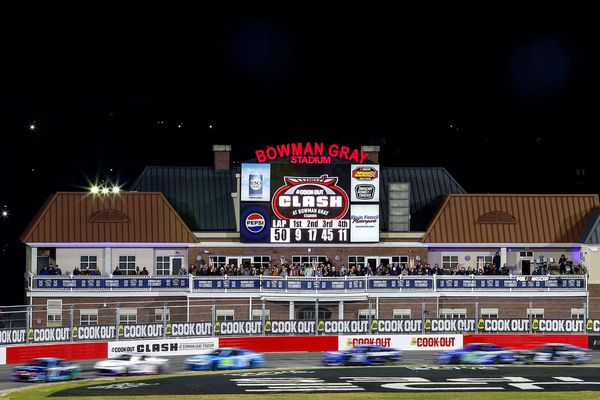-Beverley-Knight-and-Ntombizodwa-Ndlovu-in-Marie-and-Rosetta-A-Rose-Theatre-Chichester-Festival.jpeg?width=1200&auto=webp&crop=3%3A2)
The great soul singer and actress Beverley Knight often transcends the theatrical material she’s given. So it proves again in this two-hander about pioneering gospel singer and guitarist Sister Rosetta Tharpe and her mentorship of the younger Marie Knight, played with pleasing synchronicity by relative newcomer Ntombizodwa Ndlovu.
The singing from both leads is magnificent, the acting passionate but the script by American writer George Brant is pedestrian and heavy on exposition. In some ways this is inevitable. Although Tharpe was hugely popular in the 30s and 40s and inspired everyone from Elvis Presley to Jimi Hendrix, she has been shamefully sidelined.
It’s right and good that Brant reminds us of her success in a segregated and sexist America, as well as her struggles to balance missionary zeal with a taste for raunch that saw her shunned by her own church. (Alongside an exploration of blues, gospel and the emerging genre of rock, this play contains more discussion of faith than I’ve seen in many years: London theatre rarely “does God”.) The story is a fascinating one, but as the two characters meticulously explain it to one another, you find yourself longing for the songs. Fortunately, they are worth the wait.
-Beverley-Knight-and-Ntombizodwa-Ndlovu-in-Marie-and-Rosetta-A-Rose-Theatre-Chichester-Festival.jpeg)
We are in a funeral parlour, ostensibly in Mississippi in 1946. Rosetta has snatched Marie from the attentions of her pious rival Mahalia Jackson and enlisted her as her onstage costar. Since this is the South, they’ll be playing to black audiences in barns and warehouses and sleeping wherever they can, including in coffins. Their white bus driver doubles as a cook as well as an insulation against harassing police, and we first see Marie applying the sleeping Rosetta’s stage makeup.
Rosetta’s mission is to put some swing into Marie’s hips and into her pristine, churchy voice. Their differing styles are illustrated by the first two numbers, Knight unleashing the full, stirring force of her voice to tear up Tharpe’s signature hit This Train, and Ndlovu singing the spiritual Were You There like a chorister. Marie alternates between worship for Rosetta and prissy disapproval of her naughtiness, even though Rosetta apologises to God every time she says “Damn!”.
-in-Marie-and-Rosetta-A-Rose-Theatre-Chichester-Festival-Theatre-and.jpeg)
For her part, Rosetta explains how she took a bit of church into the Cotton Club – where she sang with Cab Calloway and Duke Ellington – and vice versa. Her God is a generous, indulgent one who “don’t want the devil to get all the good music”. She tells Marie never to stoop to pick up a white man’s penny, or to put up with a domineering husband. Marie, wide-eyed and gauche, turns out not to be quite as young and innocent as she seems.
Knight’s performance is full of warmth and generosity, mirroring Rosetta’s attitude to Marie, though she also injects a bit of acid into her amusing animus against Mahalia. She captures Rosetta’s essence despite being considerably more svelte. Ndlovu rises to the onstage partnership, brimming with emotion at the end, where a colossal bit of foreshadowing plays out. The rumour that Rosetta and Marie had a romantic relationship is decorously skated over.
Monique Touko’s production powers through the script’s clunkier passages with brisk efficiency and the 14 numbers (including Didn’t It Rain, Peace in the Valley, and the raunchy Four or Five Times) are blisteringly executed.
-in-Marie-and-Rosetta-A-Rose-Theatre-Chichester-Festival-Theatre-an.jpeg)
Rosetta is honoured as much for her guitar playing as her singing by those that know her: Google her 1964 performance on a wet Manchester railway station if you want to know why. Here her hot licks, and Marie’s piano-playing, are regrettably but necessarily outsourced to the excellent onstage musicians Shirley Tetteh (also the musical director) and Mia Odeleye.
They, and the drummer and bass player above the stage, are concealed behind ruched curtains echoing the undertaker’s décor. Lily Arnold’s set, like Touko’s direction, is economical: just there to showcase two powerful voices and performances.
Until 24 May, rosetheatre.org.







